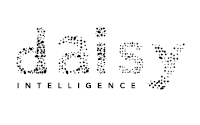
How to spot if the AI is real
 Daisy Intelligence
Daisy Intelligence
The fact is, there’s quite a bit of “fake AI” presently being offered, and this lack of clarity in the marketplace is one of the main reasons that it’s such a challenge for many to determine whether Artificial Intelligence is worth the investment. When we use the term fake AI, what we’re describing is the way legacy data analytics technologies are repackaged and marketed by (too) many vendors as AI.
The potential for significant business value around Artificial Intelligence (AI) is in and of itself nothing new. It’s been over a quarter-century since we (Daisy’s CEO) attended Geoffrey Hinton‘s lectures at the University of Toronto on AI neural networks.
Does it Provide ROI Today?
What’s relatively new is the number of organizations that are investing in AI solutions -- and realizing tangible and quantifiable benefits. For many corporations, however, AI’s perceived value is still viewed as nebulous. While we obviously can’t speak to every single product or service out there that markets itself with the term “artificial intelligence,” what we can do is emphatically state that based on our first-hand experiences in the retail and insurance industries, true AI is accessible and delivering results now, with verifiable ROI. By way of one example, Daisy Intelligence deployed AI to enable the North Carolina-based organic grocery chain Earth Fare to analyze the “ripple effects” of promotions during the weeks prior to and after the promotion in order to determine the longer-term implications and overall impact on store profitability. This particular use-case of AI in the retail category - promotion optimization - consistently delivers increases of up to 3% to the grocer’s total top line sales - with no added margin investment. One of the major elements of Earth Fare’s AI investment that characterizes it as legitimately AI is the ability to analyze the complex relationships among products; including product affinities, promotion cannibalization, promotion and purchasing cadence, along with the impacts of external factors such as competitive store openings and weather-related events.
Does it Simulate Future Outcomes or Just Tell You What Already Happened?
AI offers the ability to make decisions -- without human intervention. Take retail merchandise planning in the grocery category, for example. A retailer with 50,000 SKUs would require the humanly impossible task of performing 6x103600 calculations every week to simulate all the options available in order to maximize revenue in the selection of the 200 items to add to a typical supermarket weekly flyer. Of course there are a plethora of software solutions available that provide organizations with the ability to harvest large amounts of data and data history, but if it doesn’t offer the computational power to rapidly simulate through many billions of alternatives in order to produce the best outcomes, it’s not AI It’s sophisticated causality trending analysis. Any effort to describe that as AI is merely marketing hype.
Does it Have the Ability to Learn and “Self-adjust” the Underlying Math Without any Human Intervention or Does it Require a Team of Data Scientists to Manage it?
The word cognitive means “of or relating to the mental processes of perception, memory, judgment, and reasoning.” Real A.I is actually not difficult for the end-user to apply to their business situations. By taking some repetitive and (mathematically impossible) tasks away from people and letting machines do what machines are good at, AI “learns” in an autonomous fashion, delivering decision recommendations. And the users don’t require a team of analysts to interpret the data; they only need to decide what options they really want to follow. If a software tool provides a mass of data that then needs to be analyzed for insights - and doesn’t actually provide a strongly cognitive aspect, it’s not actually AI.
Can the Vendor Providing AI Provide Recent, Detailed, Positive Customer References?
This goes back to the first point. AI is available today, and a clear ROI can be articulated. Does the AI provider encourage potential customers to talk to others already using their solution? Marketers at so-called AI companies often re-frame past engagements with end-users (where legacy data analytics technologies were deployed) as AI.
And finally, one of the most important elements of a truly AI-based offering is who is providing it? What kind of organization is it and who’s leading it? What degrees are held by the senior executive leadership (i.e. CEO, CIO, CTO)?
One thing about true AI is that it exists firmly within the domain of advanced mathematics. What this means for end-users is although it seems counter-intuitive, AI investments are not necessarily best entrusted to companies whose DNA is based on software development and programming. Our CEO, Gary Saarenvirta, ran IBM’s data mining practice in Canada for several years, helping companies deploy high-end analytics engagements to grow their profits, often says that one of his main motivations behind launching Daisy Intelligence was to get companies to use math and science to actually simplify and improve decision-making.




